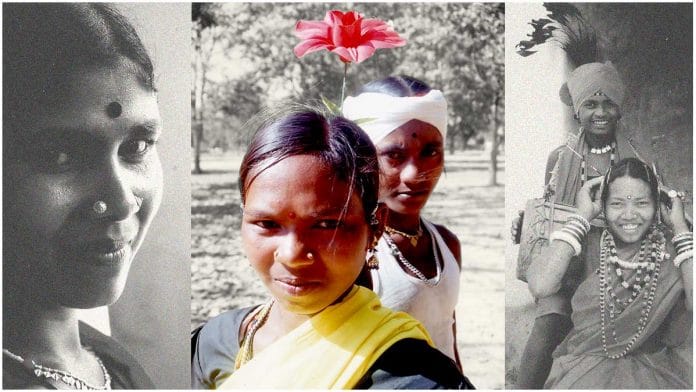Raipur: The whole world might be battling the Covid-19 pandemic, but the tribal region of Bastar in Chhattisgarh has remained free of worry on this count. Bastar, with a population of about 35 lakh, has not registered a single case, while the rest of Chhattisgarh has seen 59 people testing positive for the novel coronavirus.
Local leaders, administrators and experts say this has happened for two main reasons — the tribals’ traditional way of life is conducive to maintaining social distancing, and the government has been proactive in spreading awareness about the precautions necessary to combat the disease.
Tribal people have not only physically resisted the entry of outsiders in their villages, but have also voluntarily informed local anganwadi workers and health department officials to quarantine those who returned to the villages and tried to enter their houses secretly.
Also read: With digital tutorials, govt teaching tribals why social distancing, washing hands important
Social distancing a tribal norm
Jagdalpur-based anthropologist Rajendra Singh, the first person to earn a doctorate on the life of Abujhmadia tribals, explained how social distancing is the norm for tribals of the region.
“The boundaries of their houses are very large, to keep the neighbours at a distance, unlike urban residences or even modern villages, where houses are bunched together. Tribals maintain adequate physical distance, as they walk mostly in rows, instead of groups,” Singh told ThePrint.
“‘Work’ for them mainly means collecting things from the forest, which is again not a group activity, so they are able to maintain distancing. They only go to the markets once a week,” he said.
Singh added that this is why the government’s role in helping Bastar’s tribals in the time of Covid-19 was limited to just alerting them to be extra vigilant towards distancing.
“All anganwadi workers and health officials needed to do was to just speak to them in their dialects and convince them to maintain social distancing at all time. The tribals took care of everything else themselves. Barriers were erected at the boundaries of several tribal villages to prevent outsiders from sneaking in,” he said.
“In case migrant workers coming back from other states managed to enter the village, they were immediately brought to the attention of local health workers, and sent into isolation by the villagers themselves.”
Tribal political leader and former Union minister Arvind Netam agreed that their traditional way of life was the “proper way” to keep a disease like Covid-19 at bay. “The world must learn from them,” Netam said.
“Tribals are also naturally immune to several diseases, as they still thrive upon forest products like fruits, root vegetables and various herbal products,” he added.
Inspector General of Police, Bastar, Sundarraj Patilingam concurred.
“They might know the scientific significance of the lockdown, but tribals are very aware about keeping distance from others, and are able to maintain social distancing in their routine life,” he said.
The IG agreed with anthropologist Singh that the tribals have been very cooperative with the government.
Maoists aren’t providing support
Police officers also contradicted reports in certain sections of the media that the lockdown and anti-Covid measures taken by the Chhattisgarh government have the support of Maoists.
The officers said Maoists have been silent because their supplies have been cut off.
IG Sundarraj said: “It’s untrue that the CPI-Maoist has given support to the government’s efforts for strict adherence to social distancing norms. On the contrary, they tried to take advantage of the lockdown at certain places in the region, and damaged public property.
“We didn’t expect the Naxals not to attack security forces, but we thought they would at least have better conduct towards the people. But they have not shown that.”
Also read: Intelligence reports show Maoists are using lockdown time to regroup in Bastar







The very essence of all practices of this land and sanatana dharma was about basic hygiene physical, psycological and all other dimensions of life and existence. None of this was about discrimination. It was not even about God. It took a corona for people to realize what has been practiced in this land for thousands of years.